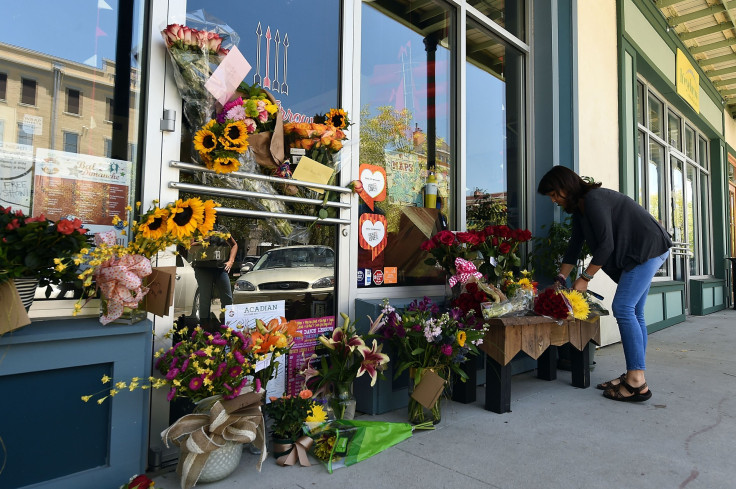Louisiana Theater Shooting: Georgia Court Failed To Report Lafayette Shooter John Russell Houser Was Committed For Mental Health Problems

Nine months after Seung-hui Cho murdered 32 people and wounded 17 others during a rampage on the Virginia Tech campus in April 2007, the U.S. passed a law compelling states to share the names of mentally ill people in order to prevent them from purchasing firearms. But John Russell Houser’s purchase last year of a .40 caliber handgun from an Alabama pawn shop, which he used to murder two women and injured nine others Thursday at a movie theater in Lafayette, Louisiana, shows that the system is seriously flawed.
What should have happened didn’t, and that lapse by a Georgia court allowed Houser to legally buy the gun he used to murder his random targets: Jillian Johnson, 33, and Mayci Breaux, 21. This lapse underscores significant problems with the way states are tackling the 7-year-old law requiring their courts to step up efforts to identify and report people who are mentally unfit to purchase firearms.
"It sure does seem like something failed," Judge Susan Tate, who presides over a probate court in Athens, Georgia, told the Associated Press, which examined court records showing that Houser’s name should have appeared in that database that would have blocked him from legally acquiring a firearm.
By any definition, Houser was a danger to himself and others. Houser committed suicide shortly after his murderous frenzy on Thursday.
Accused of arson, vandalism, domestic abuse, the 59-year-old Alabama vagabond who once flew a swastika above a bar he owned, Houser clearly had issues. But it was his forcible commitment to a Georgia mental health facility in 2008 that should have put him on the National Instant Criminal Background Check System (NICS). The national database expanded to include the mentally ill in January 2008 after the Virginia Tech massacre. Cho suffered from extreme anxiety disorder, and at the time the move was celebrated as a loophole-closer that would get guns out of the hands of people like Cho and Houser.
It’s been illegal since 1968 for mentally ill people to purchase firearms, but until 2008, there was no nationwide system for tracking people who are deemed unfit to own guns. Courts and medical professionals have been required to submit the names of people with severe mental illness to state and federal databases, but different interpretations of mental fitness have posed a challenge to the system. Still, Houser’s court-ordered detention unambiguously would have required a Georgia probate judge to report Houser. Why this didn’t happen is still unknown.
"If the mental health records are not current from our sister states, the quality of our background check is going to be compromised," Sean Byrne, acting commissioner of the Division of Criminal Justice Services in New York, told the Associated Press in 2011.
At the time, more than half of U.S. states were ignoring a federal law that requires them to share the names of mentally ill people with the national background checking system. Things have improved in recent years, with the number of mental health entries in the NICS index growing from 1.1 million in 2010 to more than 3.5 million last year, according to the Federal Bureau of Investigation, which handles the NCIS system.
But that’s figure represents only about 25 percent of Americans who suffer from severe mental illness. According to the National Institute of Mental Health, 4 percent of the population suffers from “serious functional impairment” linked to mental health condition; that’s more than 12 million people in the United States. Symptoms can include aggressive antisocial behavior and suicidal tendencies.
Seven years after one of the worst massacres committed with handguns by a mentally unsound shooter, it seems the system aimed at curbing these incidents still needs a lot more work.
"Something as simple as a file transfer from one agency to another could have altered the series of events that nearly got me killed and killed 32 of my classmates,” Colin Goddard, who was wounded in the April 2007 Virginia Tech shooting, told ABC News last year.
© Copyright IBTimes 2024. All rights reserved.




















